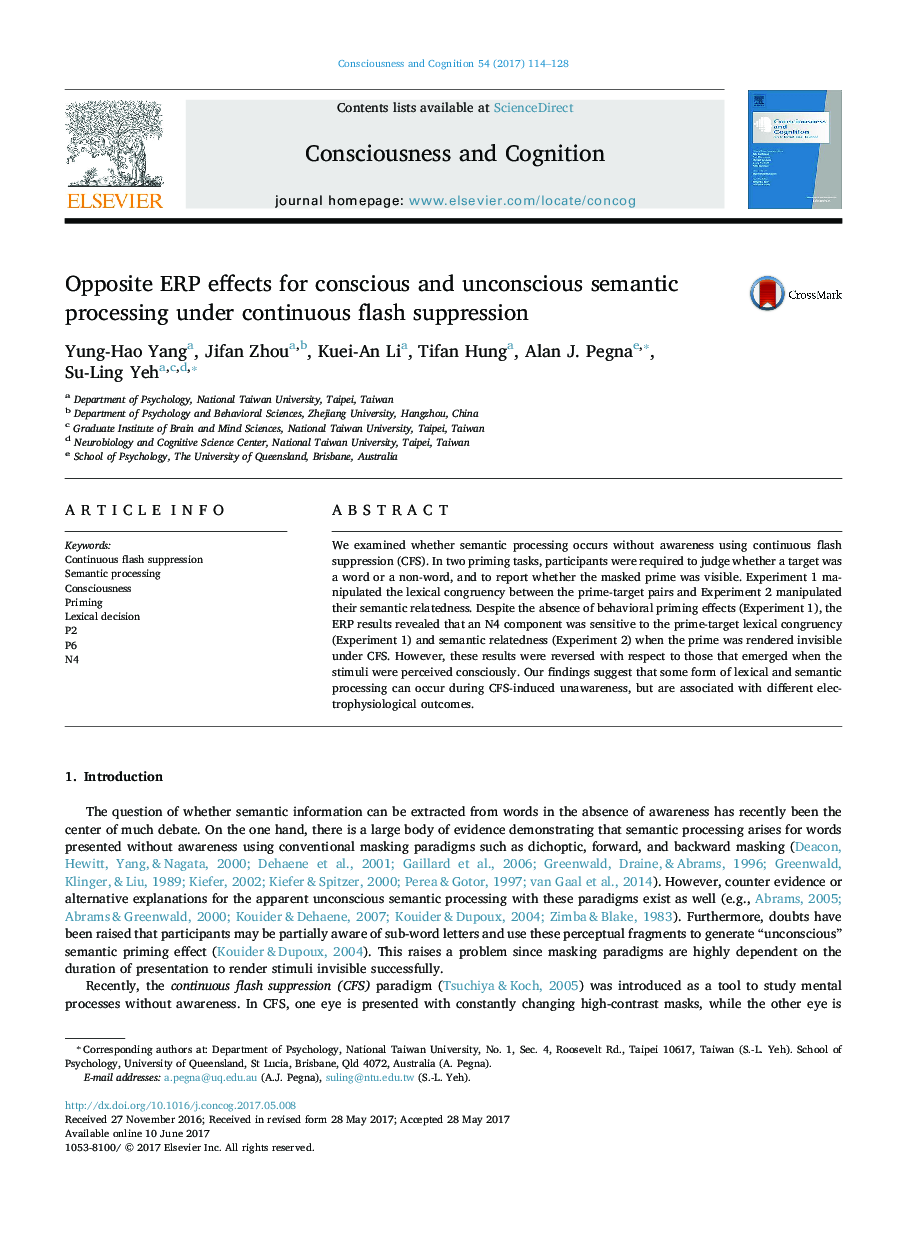| کد مقاله | کد نشریه | سال انتشار | مقاله انگلیسی | نسخه تمام متن |
|---|---|---|---|---|
| 5041727 | 1474157 | 2017 | 15 صفحه PDF | دانلود رایگان |

- Unconscious semantic priming was examined under continuous flash suppression in 2 experiments.
- Event-related potentials were compared in visible and invisible conditions.
- An N4 component was sensitive to the prime-target lexical congruency in Experiment 1.
- A P2 component was also sensitive to the semantic relation in Experiment 2.
- Semantic processing occurs for invisible words without observable priming effect.
We examined whether semantic processing occurs without awareness using continuous flash suppression (CFS). In two priming tasks, participants were required to judge whether a target was a word or a non-word, and to report whether the masked prime was visible. Experiment 1 manipulated the lexical congruency between the prime-target pairs and Experiment 2 manipulated their semantic relatedness. Despite the absence of behavioral priming effects (Experiment 1), the ERP results revealed that an N4 component was sensitive to the prime-target lexical congruency (Experiment 1) and semantic relatedness (Experiment 2) when the prime was rendered invisible under CFS. However, these results were reversed with respect to those that emerged when the stimuli were perceived consciously. Our findings suggest that some form of lexical and semantic processing can occur during CFS-induced unawareness, but are associated with different electrophysiological outcomes.
Journal: Consciousness and Cognition - Volume 54, September 2017, Pages 114-128